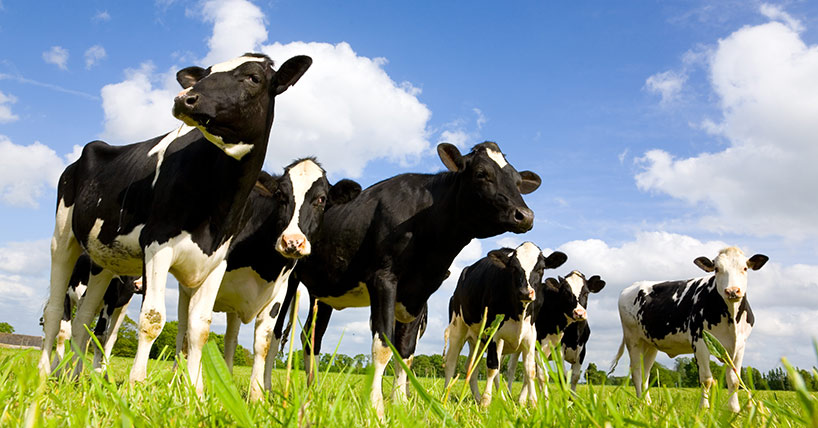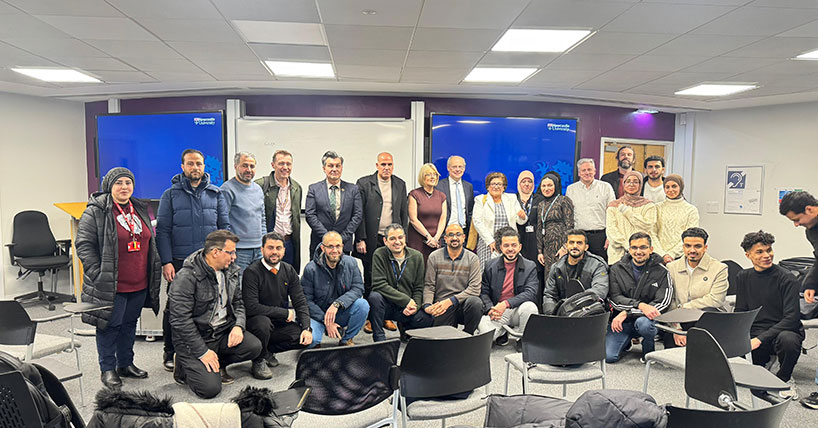Farming smart meters
Farming ‘smart meters’ could reduce harmful emissions
Published on: 1 March 2022
Scientists are trialling a new sensor to help monitor greenhouse gas emissions from agriculture.
Researchers from Newcastle University, Anglia Ruskin University (ARU) Peterborough and Mirico are to begin testing a new “smart meter” for farmers, which aims to help reduce harmful emissions from agriculture by monitoring greenhouse gasses in real-time.
The project is funded by Innovate UK, the country’s national innovation agency, while Mirico has developed sensors that use laser dispersion spectroscopy (LDS) to measure methane and carbon dioxide across an area of up to 1 sq km. A sensor to detect nitrous oxide is currently in development.
Newcastle University will study methane emissions from grazing cattle at Cockle Park farm in Northumberland, while researchers from ARU Peterborough will use the sensor to monitor nitrous oxide emissions from organic manure at a farm near Bury St Edmunds. Testing of the new technology will begin in spring 2022.
A recent Government report found that agriculture is responsible for 10% of the UK’s greenhouse gas emissions, including 68% of all nitrous oxide and 47% of all methane.
As part of the UK’s ambitions to become net zero by 2050, farmers can receive payments for implementing changes that benefit the environment through the Government’s new Environmental Land Management schemes.
Carbon emissions from farming are currently calculated using online tools. It is hoped these new sensors will allow farmers to monitor their precise emissions in real-time, allowing them to receive immediate feedback about the changes they are making on their land.
Dr Julia Cooper, Senior Lecturer in Soil Science at Newcastle University’s School of Natural and Environmental Sciences, said: “At Newcastle we’re really excited to be testing Mirico’s Orion system in fields with cattle grazing to see if it can detect methane emissions.
“Current methods are expensive and cumbersome, and this system could be a real breakthrough for researchers and farmers in future, helping to better understand how management practices affect emissions. This information is really essential if we are to develop production methods with a smaller carbon footprint.”
Dr Marcus Travers, Agri-Food Technology Lead at ARU Peterborough, said: "The work with the Mirico Orion system, in collaboration with Newcastle University, will be an important addition to our investigations here at ARU Peterborough into nitrogen use in arable crops.
“We hope the sensor will help to answer many of the important questions around the use of organic manures, inorganic fertilisers and greenhouse gas emissions. Technology like this could potentially become a common sight on farms across the country very soon."
Lee Billingham, Commercial Manager at Mirico, said: “Similar to other sectors we serve, agriculture is working hard to reduce emissions, but without technology that accurately measures those emissions, it is difficult to know what strategies are working. We’re looking forward to deploying the sensors and providing the results that will help our partners, clients and the sector make progress towards reducing their emissions.”
Adapted with thanks from ARU Peterborough




